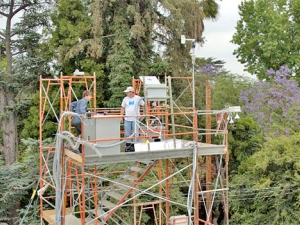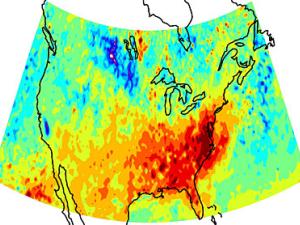

Research Bio
Atmospheric chemistry, air pollution, biosphere-atmosphere exchange of radiatively and chemically active trace gases, and development and application of novel instrumentation to investigate the organic chemistry of earth’s atmosphere. Field campaigns, controlled laboratory experiments, and modeling activities covering indoor, outdoor, urban, rural, regional, intercontinental, and global scale studies of ozone, aerosols, and their gas phase precursors. Comprehensive research questions include: What controls atmospheric concentrations of greenhouse gases, volatile organic compounds, photochemical oxidants, and aerosols? How do biological systems interact chemically and physically with earth's atmosphere?
Research Expertise and Interest
global change, air pollution, environmental science, biogeochemistry, atmospheric chemistry, indoor air quality
In the News
Unveiling the Hidden Culprits of Air Pollution in Los Angeles
How much wildfire smoke is infiltrating our homes?
With drop in LA’s vehicular aerosol pollution, plants emerge as major source
Falling levels of air pollution drove decline in California’s tule fog
Three faculty members elected AAAS fellows
Air pollution study clears the air on diesel versus gas emissions
UC Berkeley researchers released a new study that says diesel exhaust contributes 15 times more than gas emissions per liter of fuel burned.
There’s something in the California air
UC scientists built and worked in towers — some as tall as 1,500 feet — as part of the largest single atmospheric research effort in the state. The data they’ve collected will guide policymakers dealing with air pollution.
Summer haze has a cooling effect in southeastern United States, says new study
Global warming may include some periods of local cooling, according to a new study by UC Berkeley researchers. Results from satellite and ground-based sensor data show that sweltering summers can, paradoxically, lead to the temporary formation of a cooling haze in the southeastern United States.








